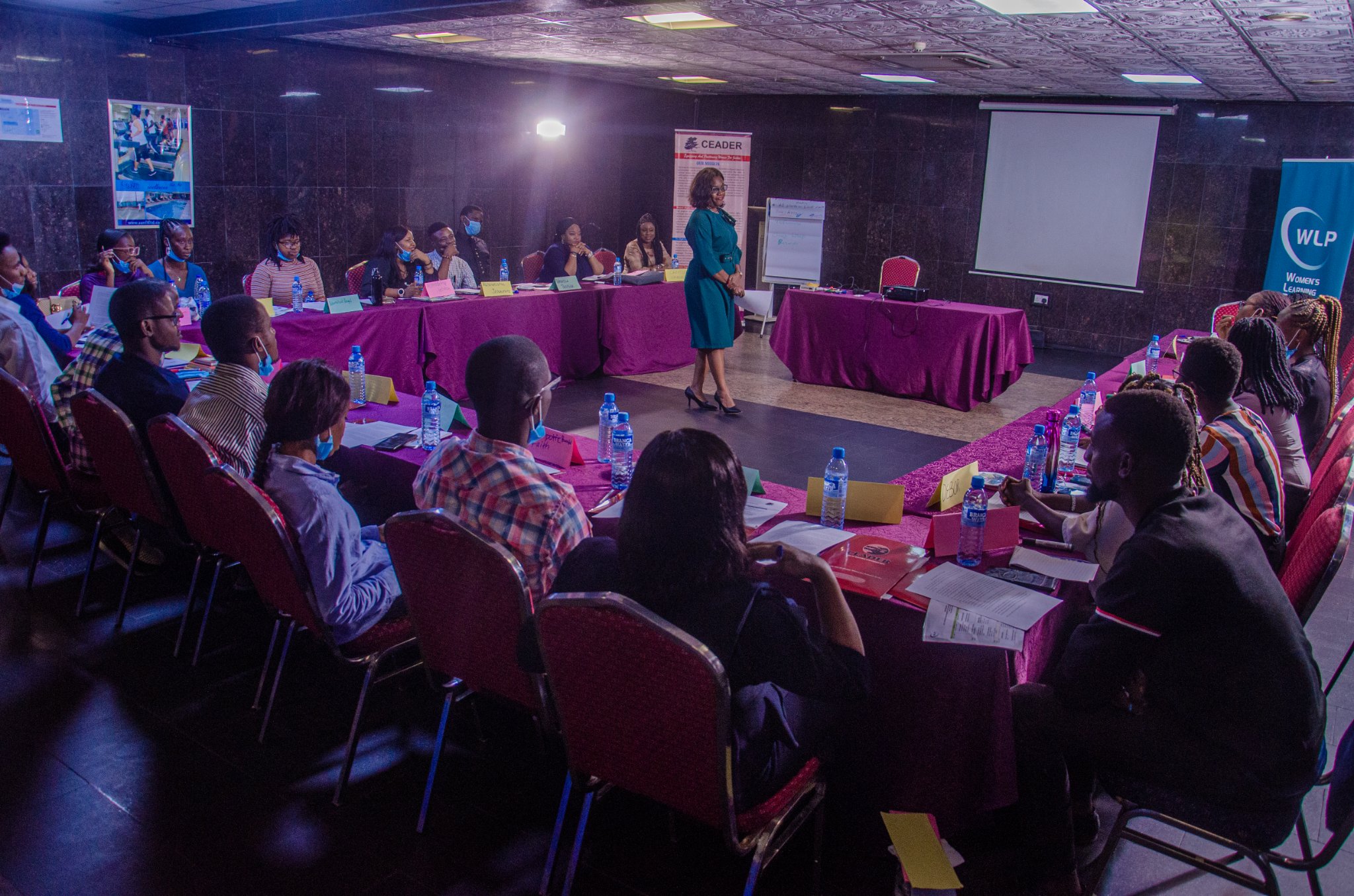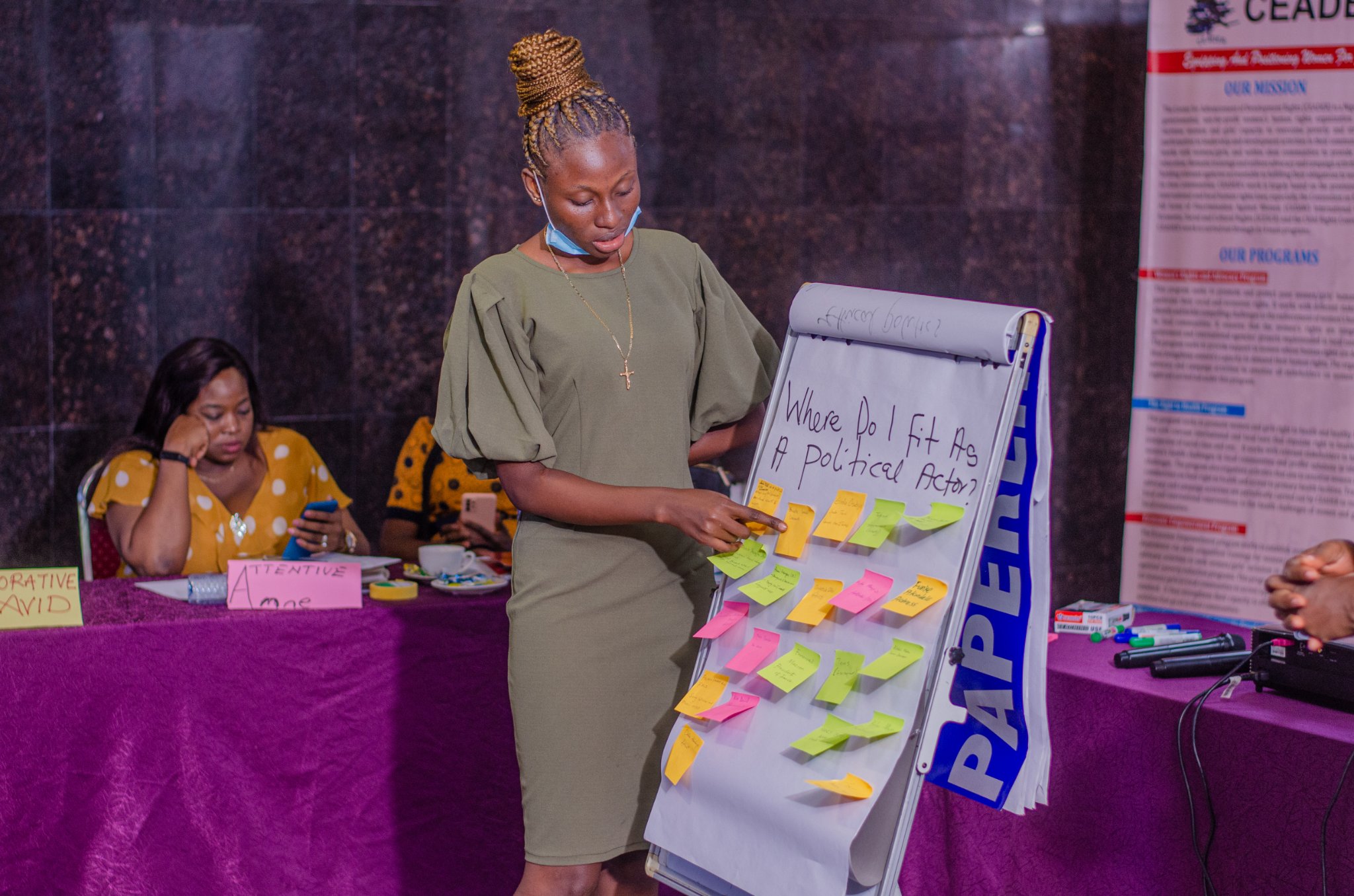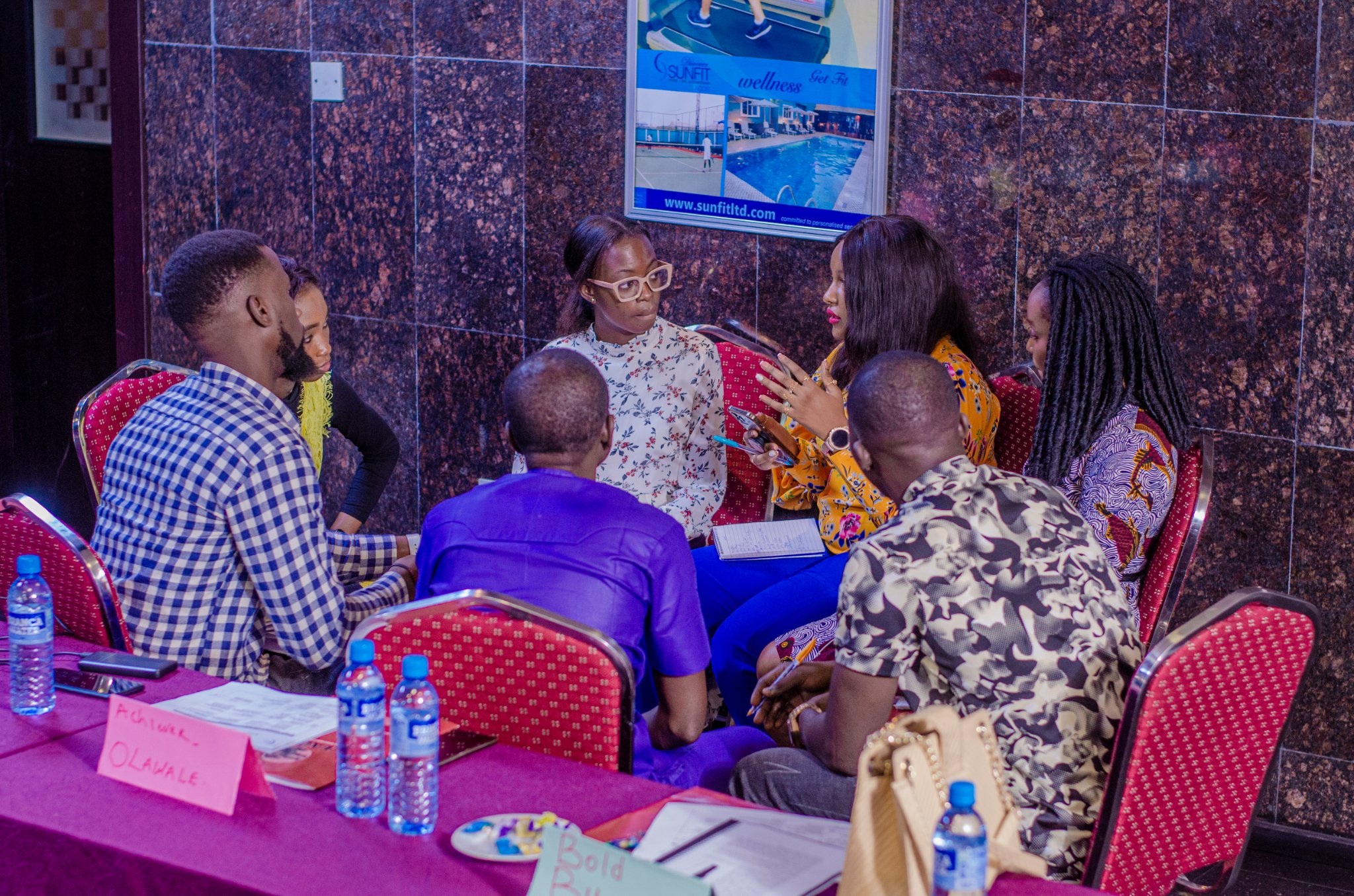
Joy Ngwakwe leads opening activities at the June 2022 "National Institute on Youth Leadership, Political Participation, and Technology."
On February 25, 2023, Nigerians will head to the polls for presidential and parliamentary elections. We spoke to Joy Ngwakwe, Executive Director of WLP’s partner organization in Nigeria, Center for Advancement of Development Rights (CEADER), about the energy she is seeing from youth ahead of the elections. “It has been really exciting and interesting to watch them almost take over this election processes, not the technical processes specifically, but the campaigning that they've been involved in is something that was not seen before. These young people are going out and are undertaking initiatives to provide platforms where people can hear about the candidates that they are supporting,” explained Ngwakwe.
According to the Nigerian Independent National Electoral Commission (INEC), over 93 million citizens are eligible to vote in the upcoming election cycle. The largest percentage of these voters, 39.65%, are youth between the ages of 18-34. “We know that young people have come to the point where they don't want things to continue as they've been. They have made the connection between their standard of living and who gets elected and they want to actively participate in a process that will change the system in a way that works for all Nigerians,” Ngwakwe said.
This will be the second parliamentary election cycle since the “Not too Young to Run Bill'' was signed into law in 2018, which lowered the age of eligibility for both presidential and senate candidates. In regards to this legislation Ngwakwe said, “We want to see the law [Not Too Young to Run] being enforced and being implemented across Nigeria. Even the current government officials have come to the realization that the political landscape in Nigeria has changed, it is not business as usual. Young people are insisting on changing the status quo.”

A Youth Institute participant shares the results of a group discussion.
To harness this momentum, CEADER and WLP co-hosted a series of youth training institutes in 2022 to prepare young people for every aspect of the electoral process - from registering voters and organizing their communities, to running for office and campaigning for their candidates. “We recognize this immense youth interest to participate in politics. We are using this opportunity to channel that energy towards ethical politics. We are getting them to understand that they have a place and they do belong in politics, they belong in leadership, and they belong wherever decisions are being made. We do not just want them to belong, we want them to have the capacity to lead and engage effectively in politics.”
CEADER encourages youth to do more than just participate in elections. Using WLP’s contextualized leadership curricula they train them to see themselves as leaders who can implement their vision for more democratic, peaceful, and equal communities. “On the first day of each of our institutes we inform them it's not just about supporting political parties, it is also about building their capacity to lead. Participants tell us that they have not participated in a training quite like the ones that we host. In our trainings youth work together, have conversations, and discover what kind of decisions they can make as leaders. They propose activities within their own communities that they can carry out and discover that they do not need to first be elected into a formal position before they recognize themselves as political actors,” Ngwakwe explains.

A group of participants work together at the June 2022 Youth Institute to plan community engagement activities.
After attending WLP/CEADER’s trainings, participants go on to organize their own leadership trainings, run for political office, and host advocacy events to promote equality and good governance. “Many of the participants have undertaken activities in their neighborhood to encourage and register people to vote. Some of them have reported that they ran for positions in the school politics, what we call the student union government. Just two weeks ago, [one participant] let us know that he won a seat in his school student government.”
Ngwakwe shared that she is encouraged by the actions of the young participants who go on to step into leadership roles. “They won this election after the training [with CEADER], which means they know how to apply gender-sensitivity to issues. They know about inclusive and democratic leadership and I believe that they are going to spread that learning in those spaces.”

The work that Ngwakwe, the team at CEADER, and these young participants are doing to build more democratic and ethical leadership systems in Nigeria does not stop with the elections on February 25. “I'm very happy that young people are taking up this initiative and about the energy they are bringing into the political arena. It has made a lot of difference and I encourage them to continue no matter what comes. They should not succumb to intimidation or anything or be discouraged no matter what,” Ngwakwe said.
“It does not end with elections,” she reminded as the interview drew to a close. “We hope that the energy will continue even beyond the election because we need that energy to continue to ensure that elected officials do what they were elected to do.”
Related Content
Transforming Communities in Afghanistan by Investing in Women and Girls: A Conversation with Zala Ahmad
This International Day of the Girl, WLP had the honor of speaking with Zala Ahmad, advisor to WLP's Cross Border Coalitions Initiative and co-founder of Safe Path Prosperity (SPP), an incredible organization dedicated to empowering Afghan women and girls through menstrual health education and access to essential products. Operated by Afghan women, SPP produces Safepad, a locally-made reusable sanitary product, in production centers located in Kabul and Kandahar. The organization is dedicated to creating pathways to employment, prosperity, and dignity for Afghan women and girls through various initiatives, including employment opportunities, mental health support, and educational awareness programs. To date, SPP has generated over 100 jobs and distributed more than 250,000 hygiene kits to women and girls across Afghanistan. In this interview, we delve into the work of Safe Path Prosperity and the organization's vision for women's empowerment in Afghanistan. Read more about the inspirational work of SPP below.
Asmae Aboulfaraj Shares Her Inspiring Journey for Achieving Gender Justice in Morocco
WLP’s partner in Morocco, the Association Démocratique des Femmes du Maroc (ADFM), has been leading an intergenerational movement to reform Morocco’s Family Code, the Moudawana, since 1985. We sat down with ADFM board member Asmae Aboulfaraj, a young feminist activist dedicated to advocating for reforms in the parts of the Moudawana that fall short of the country's constitutional commitments to gender equality. In this interview, Asmae shares her vision for collaboration between activists and civil-society organizations in Morocco and what she thinks the next generation of leaders can do to advocate for a better future for both women and men.